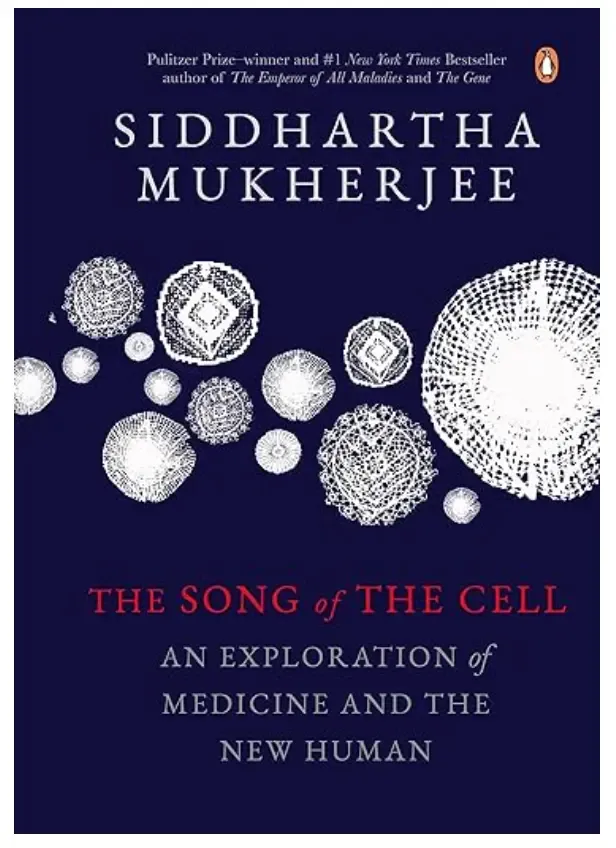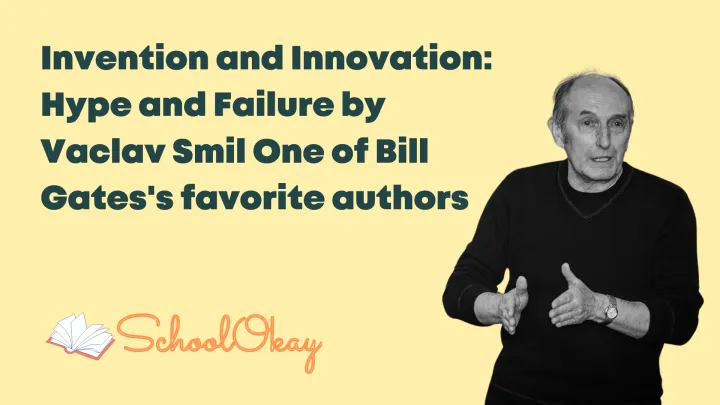The Song of the Cell: An Exploration of Medicine and the New Human
The Song of the Cell is a science novel that explores the variety of medicines and the new human. Must read to know the basic human structure

Want to explore tiny organisms, or are you interested in tiny physiological terms from which life has emerged? The Song of the Cell is a science novel that explores various aspects of medicine and the new human. It is a book that deals with cells and their discovery. Every malfunction in our body eventually comes down to something related to the cellular components.
This book examines the basic autonomous unit that makes up organisms, the smallest unit of life - The Cell. Many changes in cell biology in recent years have helped in the more efficacious use of medicines.
The book covers a wide range of topics, such as the invention of new kinds of medicine based on the therapeutic manipulations of the cell and how, with the help of cells, various life-threatening diseases such as Cancer and COVID-19 are cured. In this revolution of antibiotics, diseases that were lately considered to be fatal, such as syphilis, emphysema, and tuberculosis, are cured with exquisite agility and specificity. The book is lucid and full of vivid, suspenseful writing, making complex science very exciting.
Mukherjee himself, being a researcher, doctor, and reader, has shared his experience. He has very clearly interwoven the cell theory with his heart-touching real-life experiences with his patients dealing with disease and how the theory of cells was applied to treat them- the theory was successful on a few of them, but some didn't manage to survive.
In one of his TED Talks, he said, "Soon we'll cure diseases with a Cell, not a Pill." After winning a Pulitzer prize for his book on the biography of cancer, this book, the third on the discovery of cells, has also been remarked as one of the best-selling books in The New York Times.
What's inside the song of the cell book?

The book starts with identifying cells, which Robert Hooke and States first discovered: Each living thing is composed of cells. They are the fundamental building blocks of living organisms, both plants and animals. The entire human body, our organs, ourselves, our heart, brain, and each part is composed of different types of cells.
Through his book, he has enlightened that the 21st century will be a century of cells, which can be manipulated through gene and medical therapies to fight infections, intersect with genetic engineering, and help fight cancer—advancements in using cells in building skins from cells and in blood transfusion for childbirth. Blood transfusion has been made possible only by identifying red blood cells.
The book's name is a metaphor because a cell is like a single note, but the song is different when they come together. The multicellular organisms communicate with each other and create emergent properties that couldn't be present in a single cell alone, and there's a song.
The book explains the history and future of cell biology. Cell division and subcellular anatomy stages and how different body parts are built with different cells and communicate. The dynamics and relationship of the interaction of cells give to the complexity we see in living things.
The book contains a tremendous amount of content on cancer. A fatal disease like cancer due to an abnormal division in the multiplication of cells can be treated by the immune cells called T cells that are genetically altered in the lab to enable them to locate and destroy the cancer cells.
There are five to six cell therapies for the treatment of cancer. He talks about his discoveries in bone marrow, leukemia, HIV, lupus, T-cell therapy, etc.
The advancement of cells in medicine and the very effective results have been summarized. The function of the pancreas and insulin, which relates to diabetes and how that formulates different treatments, have been explained lucidly. Every living organism originated in different beings, with different genes, bodies, and hair, but each living organism comprises cells.
There are also some real-life incidents and experiences of the author that have mentioned containing both happy and sad endings. Mukherjee, through his stories, had tried to teach and have a better understanding of the fundamentals of cell biology. As we understand more about our body, it becomes evident that the problem with the cells led to the cause of such diseases.
This book also covers how different infections occur, and a large section about blood and a small one about the pandemic has been given. The author, in detail, has talked about a complicated concept of the proteins involved in specific cancerous cells, avoiding detection by T cells.
It is a detailed study of the history of medical diseases and covers a vast range of topics, including the brain, the heart, stem cells, and the immune system; and rather than being one chronological history of medicine in general, each chapter is about different developments in medicine as it pertains to the cell theory.
The book's theme is progression, the discoveries that allow our understanding of the enforcement of new technologies for our lives to be better and to treat diseases.
We welcomed out of the Dark Ages of understanding only through our better understanding of medicine. It's not humor or evil miasma but real issues with our physical parts that we can identify and treat.
The journey from the start to a productive cell theory has been uneven, but our better understanding of the cells will be more effective. This book is all about the evolution of cells and the history of medicine. With the help of cells, we have effectively advanced in developing new technologies for curing diseases and continue improving them daily. This book is panoramic and intimate - a masterpiece, which is why Bill Gates recommended this book in one of his blogs.
Also read the following:
Books that Every Indian Must Read Recommended by J Sai Deepak.
10 Best decision-making books you can read this year.
Best psychology books you can read in 2023.
Share and subscribe to the blog by email.




Comments ()